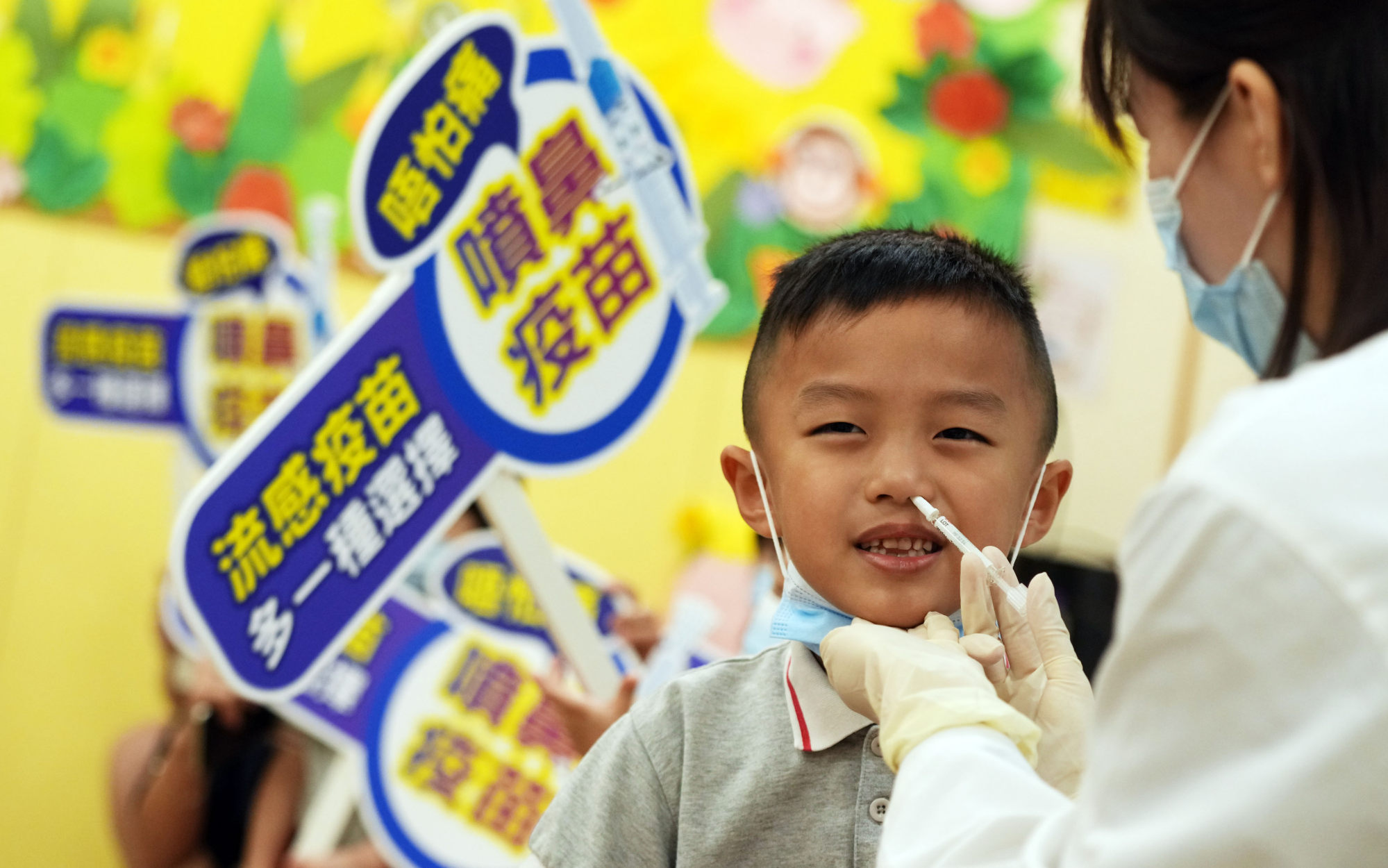
20 deaths among 47 serious flu cases spark warning to Hong Kong public to get vaccinated
- Authorities record 17 related deaths in four days from Sunday; vaccine expert Professor Lau Yu-lung appeals to public to get flu jab
- Lau says immunity is low as city has not experienced surge in flu cases over past three years amid Covid-19 pandemic
Hong Kong recorded 47 serious flu infections – including 20 deaths – last week, with another 17 related fatalities logged within four days from Sunday as a leading expert appealed to the public to get vaccinated against the disease.
“Most [of the serious cases] are children and the elderly,” said Lau, who chairs the Scientific Committee on Vaccine Preventable Diseases. “The elderly have weaker immunity and organs, and they usually have chronic illnesses.”

For children under five, the flu could lead to acute brain damage, he warned.
The latest statistics from the Centre for Health Protection showed there were 47 severe flu cases between April 9 and 15 and that 20 residents had died.
Fourteen of the serious cases, or about 30 per cent, had been vaccinated against the illness. The number of serious cases marked a 74 per cent increase from 27 recorded in the first week of the month.
Another 29 serious cases were logged between Sunday and Wednesday this week, 17 of which were fatal.
Since the start of the flu season on April 6, 103 people had developed serious conditions, and 49 of them had died, including a 17-year-old teenager.
Different indicators for flu activity continued to show an upwards trend, including the rate of influenza-like illnesses in public and private clinics, the number of flu-positive samples handled by the public laboratory, and public hospital admissions associated with the illness.
Covid-19 also saw an uptick, with the weekly number of severe cases, including fatalities, climbing to 39 last week, from 30 in the preceding week.
In the first four days this week, from Sunday to Wednesday, 41 serious Covid-19 cases were logged.
Flu vaccine makers ‘set aside 200,000 doses’ to plug Hong Kong gap amid case spike
Lau, speaking on a radio show on Thursday, appealed to residents to get vaccinated against the flu as the city had not experienced a surge in cases in the three years since the Covid-19 pandemic began.
The last flu season in Hong Kong spanned from late 2019 to early 2020.
“The public in the past three years did not have a chance of getting infected,” Lau said, referring to how protection against the disease was developed. “If people got vaccinated, they could develop some immunity.”
According to recommendations on flu vaccination issued by the scientific committee on Wednesday, priority continued to be given to groups such as healthcare workers, people aged 50 or older, pregnant women, care home residents, those with chronic illnesses and children aged six months or older.
Lau said studies showed that the recombinant flu vaccine, which made use of a technology that did not require growing a virus in eggs, provided higher protection for the elderly when compared with the traditional inactivated jab.

He said the city should have enough stock of the recombinant flu vaccine for about 80,000 to 90,000 elderly residents and disabled people from care homes.
Private doctors earlier warned their supply of flu vaccines was running low amid a delay in the peak of the flu season, which typically occurred in January. Their current stock was for flu vaccinations which started last October.
After liaising with suppliers, the Department of Health assured private doctors there would be enough flu vaccines to order. These jabs, which were for the current flu season, would expire in June or later.
As Hong Kong struggles with shortage of drug Tamiflu, should residents worry?
Sanofi, GlaxoSmithKline and Abbott are the three main suppliers of flu vaccines in Hong Kong.
Dr Edmund Lam Wing-wo said he noticed a slight uptick in the number of people seeking flu vaccinations, after ordering of the jabs resumed last week.
He said about five people visited his clinic to get vaccinated against the illness each day, compared with 50 to 100 during the usual peak time for receiving the inoculations.

